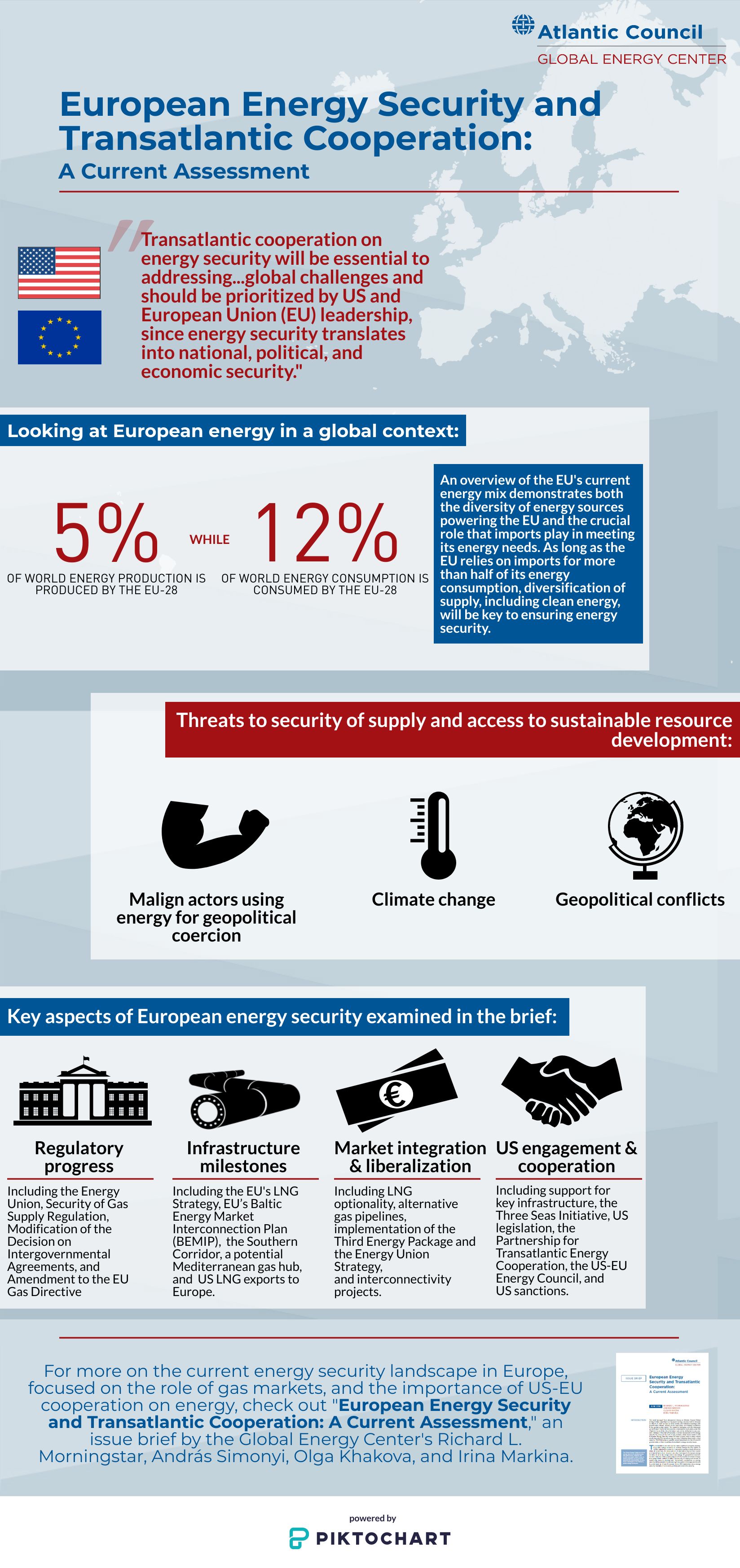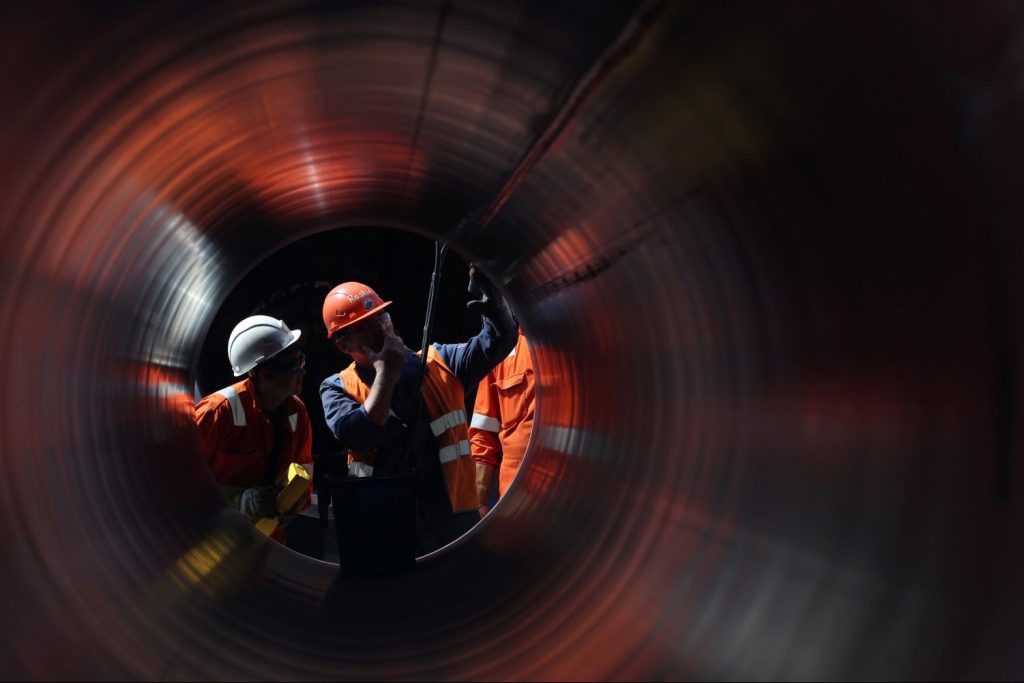The Issue: The transatlantic community has made significant progress leveraging global energy resources to increase energy security, thanks to advancements in renewable energy, energy efficiency, shale oil extraction, alternative source and route development, and infrastructure. However, European energy still faces security challenges and it must continue to address them. A united and well-connected Europe is a more resilient Europe, and the United States benefits in many ways from having a strong ally with vast energy investment opportunities, so European energy security should continue to be at the pinnacle of US-EU collaboration. This issue brief provides a current assessment of EU energy security, focusing specifically on the role of gas markets.
Four Key Areas of Interest:
- Regulatory progress—One of the EU’s key tools for ensuring energy security is its regulatory framework. In a rather short period, the EU was able to move forward on a few key elements of its energy regulatory framework and goals. However, regulations are only as compelling as their enforcement, so this aspect of the EU’s progress is also addressed.
- Infrastructure milestones—In addition to strengthening the regulatory backstops, the EU has made considerable investments in strategic energy infrastructure in order to prevent and manage energy supply emergencies. More than thirty strategic energy projects have been implemented in Europe in the last five years, with a specific focus on the most vulnerable regions.
- Market integration and liberalization—The EU has made great strides on regulations and infrastructure, but key energy security challenges remain for optimizing competitiveness and interconnections in the European energy market. The biggest barriers to an integrated and liberalized energy market in Europe are the uneven implementation of the Third Energy Package and the Energy Union Strategy across EU members states and infrastructure gaps in electricity and gas interconnectors.
- US engagement and cooperation—The development of priority infrastructure projects, support for consistent implementation of EU rules, increased education for energy consumers, resolution of energy-related conflicts, and joint collaboration on funding mechanisms for European and global energy infrastructure are critical to European energy security and present the greatest opportunities for transatlantic cooperation.
Why It Matters: Transatlantic cooperation on energy security will be essential to addressing global challenges and should be prioritized by US and EU leadership, since energy security translates into national, political, and economic security. Engagement in European energy security also presents an opportunity to reinvigorate transatlantic ties with US allies in times of uncertainty and transformational change across the energy sector.

Becca Hunziker is a program assistant at the Atlantic Council Global Energy Center.
Image: Workers are seen through a pipe at the construction site of the Nord Stream 2 gas pipeline, near the town of Kingisepp, Leningrad region, Russia, June 5, 2019. REUTERS/Anton Vaganov

